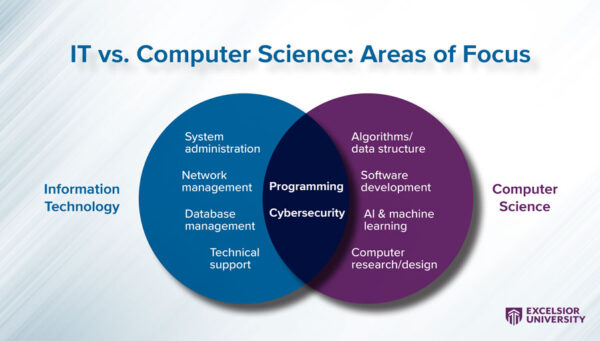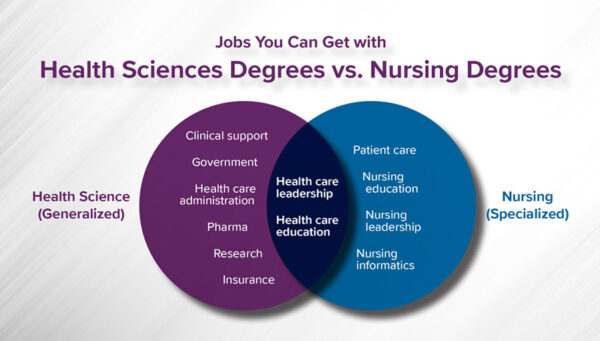Interested in becoming a registered nurse (RN), furthering your nursing skill set, or advancing your career in the field? One of the first steps is deciding which education path you should take to achieve your goals. It’s useful to understand the differences between an associate degree in nursing (ADN) program and a Bachelor of Science in Nursing (BSN) program. Explore both in depth below to better understand which path aligns with your career aspirations.
What Is an ADN Nurse?
An ADN nurse is a registered nurse who has completed an associate degree program in nursing.
Educational Requirements for ADN Nurses
Associate degree programs in nursing are offered by community colleges and some universities. Depending on the school and the student’s circumstances, it may take anywhere from two to four years to complete. To enroll in an ADN program, students generally need a high school diploma or GED certificate.
The curriculum includes a mix of classroom instruction and clinical practice. Core subjects include anatomy, physiology, microbiology, chemistry, nutrition, and psychology. Additionally, students learn about nursing fundamentals, medical-surgical nursing, pediatric nursing, maternal and newborn nursing, mental health nursing, and community health nursing. Upon completing the program, graduates must pass the NCLEX-RN exam to become licensed registered nurses.
Job Opportunities with an ADN
Common roles for ADN-prepared nurses include staff nurse, charge nurse, and clinical nurse in different specialties such as medical-surgical, emergency, pediatrics, obstetrics, mental health, and addiction and rehabilitation. Although ADN nurses can secure entry-level positions, further education and certifications can lead to advanced roles and increased responsibilities. They can work in settings such as:
- Hospitals
- Long-term care facilities
- Outpatient clinics
- Physicians’ offices
- Home and hospice health care
- Public health
- Occupational health
- Patient care in intensive care units
- Travel nursing
What Is a BSN Nurse?
Simply put, a BSN nurse is a registered nurse who has completed a Bachelor of Science in Nursing program.
Educational Requirements for BSNs
A Bachelor of Science in Nursing is a four-year degree offered by universities and colleges. Admission to a BSN program typically requires a high school diploma or equivalent, with coursework in subjects like biology, chemistry, and mathematics.
The BSN curriculum is comprehensive, covering the same foundational subjects as ADN programs but with a greater depth and additional coursework in leadership, research, public health, and the social sciences. Clinical rotations are more extensive and often include community health and specialty areas. Upon graduation, BSN students must pass the NCLEX-RN exam to become licensed registered nurses.
Job Opportunities for BSN Nurses
BSN-prepared nurses have a broader range of job opportunities compared to ADN nurses, often qualifying for higher-level positions and leadership roles. They might work in settings like hospitals, clinics, long-term care facilities, and community health settings. BSN nurses are also well-positioned for roles in public health, nursing education, research, and informatics.
In addition, a BSN is often a prerequisite for advanced practice positions like nurse midwife, nurse practitioner, and nurse anesthetist, which require additional education and certification. BSN nurses are frequently preferred by employers as well as associated with improved patient outcomes and higher standards of care.
Some other potential roles include:
- Oncology nurse
- Critical care nurse
- Telehealth nurse
- Cardiac nurse
- Pediatric nurse
- School nurse
- Nurse case manager
- Nurse manager
ADN vs. BSN: The Main Differences
Numerous factors play into the differences between an ADN and a BSN, from the time it takes to complete them to salary potential to the impact each has on the health outcomes of patients.
Time to Complete Degree
An associate degree in nursing typically takes anywhere from two to four years to complete, depending on the college and whether the student is enrolled full time or part time.
A Bachelor of Science in Nursing usually requires four years of full-time study. Accelerated BSN programs are available for individuals who already hold a bachelor’s degree in another field, often taking 12 to 18 months to complete.
Curriculum
An ADN curriculum focuses on foundational nursing skills and essential clinical competencies. It includes courses in anatomy, physiology, microbiology, pharmacology, and basic nursing practices. Clinical rotations are included but are generally more limited in scope.
BSN college curricula are more comprehensive, covering all areas taught in an ADN program but with additional coursework in leadership, research, public health, nursing theory, and the social sciences. BSN degree programs also emphasize critical thinking, communication, and management skills.
Salary Potential
ADN nurses can expect to earn a competitive salary, though typically less than their BSN counterparts and with fewer opportunities for salary growth.
BSN nurses tend to earn higher starting salaries and have greater potential for salary increases over their careers. Many health care employers offer financial incentives or higher pay scales for BSN-prepared nurses because of their advanced education and training.
Further Education and Advancement
A registered nurse with an associate degree may choose to enroll in an RN-to-BSN program or pursue specialty certifications.
BSN-prepared nurses have greater opportunities for career advancement and further education. They are eligible for advanced practice roles such as nurse practitioner, nurse anesthetist, and nurse midwife, which require graduate-level education. BSN nurses are also better positioned for leadership roles and administrative positions.
Impact on Patient Care
ADN nurses are fully capable of providing high-quality patient care. They possess the necessary skills to manage patient needs effectively and contribute to positive outcomes.
At the same time, research indicates that BSN-prepared nurses are linked to improved patient outcomes, including lower mortality rates and reduced incidence of medical errors. The advanced education and training in evidence-based practice, critical thinking, and leadership contribute to a higher standard of care and better patient outcomes.
ADN vs. BSN: How to Choose What’s Best for You
Ultimately, the choice between an ADN and a BSN depends on your immediate and long-term career goals, financial situation, and personal circumstances. If you aim to start working quickly and are looking for a cost-effective entry into nursing, an associate degree in nursing might be the ideal choice. However, if you seek broader career opportunities, want higher earning potential, and are willing to invest more time and money into your education, a bachelor’s in nursing could be the better option.
Begin (or Continue) Your Career in Health Care with a Nursing Degree from Excelsior University
Whether you opt for an associate degree in nursing or decide to pursue a Bachelor of Science in Nursing, Excelsior University has the online nursing degree program that’s aligned with your goals, with associate, bachelor’s, and master’s degrees. Designed around the lifestyles of working nurses, our fully accredited online programs provide the flexibility you need to succeed in your studies and career. Request more information or apply today!








